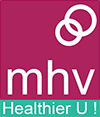What Is Hospital Management Software?
Hospital management software is a digital platform specifically intended to help healthcare organizations optimize operations and improve patient care. It provides a comprehensive solution for managing all areas of a hospital, from administrative activities to clinical processes. This integrated system efficiently manages a variety of tasks, including patient registration, appointment scheduling, billing and invoicing, inventory management, and patient records.
The primary goal of hospital management software is to increase the overall efficiency and effectiveness of the hospital by automating manual operations and lowering staff workload. By minimizing paperwork and laborious data entry, this software enables healthcare providers to concentrate more on patient care, resulting in improved treatment outcomes and increased patient satisfaction.
Hospital management software allows healthcare workers to make informed decisions and deliver tailored treatment by incorporating modern technologies such as electronic medical records, e-prescriptions, and real-time patient monitoring. It also gives accurate and timely insights, which help with strategic planning, resource allocation, and cost control.
Some important considerations when selecting hospital administration software are user usability, scalability, integration with other systems, data security, and vendor support and training. The software should also adhere to industry norms and standards, such as HIPAA, to maintain patient confidentiality and privacy.
Investing in a reliable and comprehensive hospital management software can provide various advantages to any healthcare organization. It may boost productivity, minimize errors, improve patient outcomes, and ultimately help the hospital grow and succeed. As a buyer, you must conduct extensive research and comparisons of several software choices to determine which one best meets your hospital's needs and budget.
What Are The Recent Trends In Hospital Management Software?
The healthcare business is continually evolving, as is the landscape of hospital management software. New technology, laws, and customer demands are pushing the creation of creative solutions for streamlining operations, improving patient care, and increasing overall efficiency.
Some of the latest trends in hospital management software are:
1. Cloud-Based Solutions: As cloud technology gains traction in a variety of industries, healthcare is following suit. Cloud-based hospital administration software is more cost-effective, versatile, and scalable than traditional on-premise solutions. It facilitates access to patient data and improves communication between departments and locations.
2. Artificial Intelligence (AI): AI-powered hospital management software is increasingly popular in the healthcare industry. This technology can analyze massive volumes of data and deliver insights to help enhance patient care, streamline workflows, and make data-driven decisions. AI-powered solutions have the ability to automate routine processes, allowing healthcare personnel to focus on more important duties.
3. Interoperability: The healthcare business has long grappled with the problem of disparate systems being unable to communicate with one another. Interoperability has become a major emphasis for hospital management software, with initiatives underway to ensure that data from various systems can be exchanged effortlessly. This allows patients to migrate smoothly between departments and facilities, allowing healthcare professionals to obtain all necessary information in one spot.
4. Mobile Applications: The increased usage of smartphones has resulted in the creation of hospital management software applications for mobile devices. These apps enable healthcare personnel to access patient information, manage calendars, and interact with colleagues on the road. Patients are increasingly using mobile applications to schedule appointments, view test results, and connect with their healthcare professionals.
5. Revenue Cycle Management: Hospital management software now includes revenue cycle management solutions to help healthcare organizations improve their billing and payment procedures. These systems can automate claims processing, track insurance payments, and produce reports and analytics to assist identify areas for improvement.
Benefits Of Using Hospital Management Software
Hospital management software is a comprehensive solution built primarily to help healthcare firms streamline and automate their daily operations. This program provides numerous advantages that can significantly increase the efficiency and quality of patient care, making it an indispensable tool for every modern healthcare provider.
We'll go over the main benefits of adopting hospital management software so you can make an informed selection.
1. Improved Patient Service: One of the most major benefits of employing hospital management software is the increased quality of service. This program assists in organizing patient records and documenting their medical history, treatments, and prescriptions. This information is easily accessible to healthcare providers, allowing them to make quick and precise decisions, resulting in better patient outcomes.
2. Efficient Process Management: Hospital management software automates the whole process of a healthcare center, from appointment scheduling to billing and discharge. It removes the need for manual documentation and lowers the risk of errors, saving time and enhancing efficiency. This improves time management, allowing healthcare providers to focus more on patient care.
3. Cost Savings: Hospital management software can help healthcare firms save money by automating operations and minimizing manual paperwork. It minimizes the need to hire additional workers to undertake administrative chores, reducing the risk of human error and financial loss. It also helps to reduce operating expenses by effectively managing resources such as inventories and equipment.
4. Enhanced Data Security: In the healthcare industry, data security is critical. Hospital management software includes powerful security safeguards that protect patient data from unauthorized access. It enables authorized people to securely access patient information, ensuring patient confidentiality and adherence to data protection rules.
5. Accurate Reporting And Analytics: Hospital management software includes comprehensive reporting and analytics capabilities that provide insights into numerous elements of a healthcare facility's operations. This enables healthcare professionals to track performance, discover improvement opportunities, and make data-driven decisions. With real-time data at their disposal, they can make more educated decisions to improve patient care.
Important Factors To Consider While Purchasing Hospital Management Software?
When it comes to choosing the best hospital management software for your firm, numerous criteria must be carefully addressed. These aspects can have an impact on the efficiency and efficacy of your healthcare operations, so carefully consider your options before making a purchase.
Here are some important considerations to consider while selecting hospital management software.
1. Functionality: The software's functionality should be the first and most important consideration. It should be able to meet your hospital's specific demands and standards, such as patient record management, appointment scheduling, inventory monitoring, billing and invoicing, and more. Make sure to analyze the software's features and modules to see if they meet the needs of your firm.
2. Usability: The software should be user-friendly and simple to navigate. It should not require substantial training or technical knowledge to operate. A convoluted system might cause user unhappiness and, as a result, reduce your staff's total productivity.
3. Integration Capabilities: Your hospital management software should be compatible with your current systems and devices, including electronic health records, laboratory equipment, and billing systems. This ensures seamless data transfer and reduces the likelihood of errors caused by human data entering.
4. Security And Compliance: Healthcare firms handle sensitive patient information, thus it is critical to ensure that the software has strong security mechanisms in place. It should follow industry laws, like as HIPAA, to safeguard patient confidentiality and prevent data breaches.
5. Customization And Scalability: As your business grows, your software should be able to adapt and scale properly. It should provide adjustable options for your specific workflows and enable for the installation of additional features as needed.
6. Support And Training: It is critical to assess the amount of support and training offered by the software vendor. They should give full training for your employees to ensure a smooth transfer to the new system, as well as continuing assistance for any technical issues that may develop.
7. Pricing: Finally, take into account the cost of the product as well as any additional payments for ongoing support or upgrades. Make sure to consider the return on investment and choose software that matches your budget while still satisfying your organization's requirements.
What Are The Key Features To Look For In Hospital Management Software?
Efficient and effective software is vital for hospital management. Hospital management software may simplify processes, boost productivity, and improve patient care. However, with so many alternatives available, it might be difficult to decide which features are required for your hospital's specific needs.
To aid in your decision-making process, below are the essential characteristics to look for in hospital management software:
1. Electronic Health Records (EHR): Any hospital management software is built on the ability to store and manage patient records digitally. Look for a system that allows you to easily and securely access patient information such as medical history, diagnoses, prescriptions, and test results.
2. Appointment Scheduling: Efficient appointment scheduling and management is a key aspect for every hospital. Look for software that allows you to customize the scheduling choices, send reminders to patients, and book appointments through the patient portal.
3. Billing And Invoicing: A complete hospital administration software package should include billing and invoicing features. This feature makes it possible to generate accurate and timely bills, process insurance claims, and track payments.
4. Inventory Management: Hospitals use a wide range of medical supplies and equipment, making inventory management an essential function. Look for software that allows you to track supplies in real time, automate reordering, and provide inventory and usage data.
5. Appointment Reminders: Missed appointments can lead to lost revenue and lower patient satisfaction. To reduce no-shows, look for software that sends out automated appointment reminders via text or email.
6. Reporting And Analytics: A reliable hospital management software should be able to create extensive reports and analytics. This tool can assist in identifying areas for improvement, tracking performance, and making data-driven decisions.
7. Integrated Communication: Hospital management software should provide seamless communication between departments and with patients. Look for a system that supports texting, chat, and integration with telemedicine services.
8. Security And Compliance: Given the importance of sensitive patient information, security and compliance should be prioritized. Ensure that the software you chose conforms with all HIPAA laws and has suitable data security protections in place.
9. User-Friendly Interface: The software should be simple and easy to use, with a clean and well-organized interface. This will help employees understand the system fast and reduce errors.
10. Customizability And Scalability: Hospitals have distinct requirements that may necessitate the customization of specific features. Look for software that can be customized to meet your hospital's specific needs and can scale as it grows. By focusing on these critical qualities, you can limit down your selections and select the finest hospital management software for your organization. Remember to look into the vendor's customer service and training alternatives to ensure a seamless setup and continuous support for your program.
Why Do Businesses Need Hospital Management Software?
Hospital management software is a critical tool for modern healthcare institutions that helps to streamline operations, improve patient care, and boost overall efficiency. Developed exclusively for the healthcare business, this software provides a comprehensive solution for managing all elements of a hospital, from administrative work to patient care. One of the primary reasons businesses want hospital management software is to efficiently manage patient data.
This program enables hospitals to keep and access patient records online, eliminating the need for cumbersome paper files. Healthcare providers may now easily access patient medical histories, medication records, and treatment plans in real time because to the ability to store enormous volumes of data. Furthermore, hospital management software enables organizations to automate and expedite administrative processes.
This comprises activities including appointment scheduling, billing, and inventory management. By automating these procedures, healthcare facilities can minimize administrative burdens on their staff and devote more time to patient care. One of the most difficult issues for hospitals is to ensure that communication flows smoothly between departments.
Hospital management software connects multiple operations and divisions, enabling better collaboration and communication. This guarantees that all departments are on the same page, resulting in increased cooperation and production. Hospital management software also has a variety of functions that might help improve patient care. For example, it can send out warnings for prescription reminders, allergies, and potential drug interactions.
This ensures that patients receive the correct treatment at the appropriate time, reducing the possibility of errors and increasing patient outcomes. Finally, hospital management software offers data analytics and reporting capabilities, enabling enterprises to get insight into their operations. Analyzing data like as patient wait times, staff performance, and inventory levels allows hospitals to discover areas for improvement and make data-driven decisions to enhance their operations.
How Much Time Is Required To Implement Hospital Management Software?
The time required to implement hospital management software varies based on a number of factors, including the facility's size, the scope of the program, and the level of customization necessary. On average, the implementation process takes 3 to 6 months, however some hospitals estimate a schedule of up to 12 months. The first stage in deploying hospital management software is to thoroughly assess the institution's present processes and systems.
This includes identifying areas for improvement and determining which software features will be the most useful. Next, the hospital will need to form a project team to oversee the implementation. This team will be made up of representatives from many areas, including IT, financial, and clinical professionals. Once the project team is established, the hospital management software vendor will collaborate with them to tailor the program to the hospital's specific requirements.
This may include establishing workflows, assigning user roles and rights, and connecting the software with existing systems. After the customisation is completed, the hospital will need to hold training sessions for employees to familiarize them with the software and its features. This training is critical for ensuring a smooth transition to the new system.
Finally, the hospital will conduct a testing phase to detect any flaws or issues that must be fixed before the program goes online. Once all of the problems have been sorted out, the software will be formally released, and the hospital will begin to reap the benefits of increased efficiency and streamlined processes. It is critical for hospitals to be patient during the implementation process and to dedicate the time and resources required for a smooth rollout.
Rushing through the implementation can result in costly blunders and delays in getting the desired results. Proper planning and communication between the hospital and the software vendor may make the installation process easy and efficient, thereby improving the hospital's overall administration.
What Is The Level Of Customization Available In Hospital Management Software?
The level of flexibility offered in hospital management software varies between product and vendor. However, in general, hospital management software provides a high level of customisation to fit the specific demands and processes of various healthcare facilities. First and foremost, hospital management software enables the customization of user access and roles.
This guarantees that only authorized workers have access to critical patient information, while still granting each user access to the capabilities and data required for their function. This not only ensures security, but also streamlines process and increases productivity. In terms of software capabilities, many hospital management systems allow users to customize modules based on the services and departments within a facility.
For example, a hospital may require specific characteristics for its imaging department but not for its emergency department. This adaptability enables healthcare companies to modify the software to their individual requirements rather than being constrained to a one-size-fits-all solution. Customization in hospital management software also includes the option to add and delete features and integrations.
This means that healthcare providers can select which third-party applications and devices to interface with the program, such as electronic health records or medical equipment. This level of customization enables smooth integration while also increasing the system's overall efficiency. Furthermore, several hospital management software vendors give customisable reporting options.
This enables healthcare organizations to develop reports and analytics tailored to their specific requirements and goals. For example, a hospital may wish to monitor the success rate of a given treatment or the cost of supplies in a specific department. Customized reports can provide useful information about the facility's performance and assist identify areas for improvement.
Overall, hospital management software provides a high level of customisation to meet the specific goals and processes of healthcare organizations. From user access and roles to customizable modules, features, and reporting, the program may be modified to match the unique needs of each organization. This not only increases functionality, but it also assures that the program promotes and improves patient care quality.
Which Industries Can Benefit The Most From Hospital Management Software?
Hospital management software is an invaluable tool for any healthcare organization since it streamlines operations, increases efficiency, and improves overall patient care. However, some industries may profit more from this software than others.
Here are the industries that will profit the most from hospital management software.
1. Hospitals And Healthcare Facilities: This may seem like an obvious choice, but hospital management software is primarily used by hospitals and other healthcare facilities. This software can help these organizations manage patient information, organize appointments, and maintain healthcare inventory more efficiently. It also simplifies administrative processes like invoicing and insurance claims, freeing up healthcare providers to focus on providing high-quality treatment to patients.
2. Ambulatory Care Center: Ambulatory care centers, such as outpatient clinics and urgent care facilities, also benefit significantly from hospital administration software. These centers frequently see a large number of patients and require prompt and accurate information in order to deliver effective care. Hospital management software enables these facilities to manage patient data, optimize billing and documentation, and ensure a seamless workflow.
3. Long Term Care Facilities: Long-term care institutions, such as nursing homes and assisted living facilities, have specific requirements for managing their operations. Hospital management software created expressly for these facilities can help with duties such as medication management, care planning, and staff scheduling. It also helps these facilities comply with healthcare standards and keep correct records for each resident.
4. Rehab Centers Hospital management: software can also be beneficial to rehabilitation institutions, such as physical therapy clinics and mental health facilities. These facilities frequently contain a varied range of patients with complex medical histories, necessitating a centralized system to adequately manage their data. In addition, hospital management software can help with appointment scheduling, personnel administration, and billing tracking.
5. Laboratories: In addition to healthcare facilities, laboratories play an important role in the healthcare sector. Hospital management software can assist these labs in managing their inventory and equipment, tracking test results, and producing reports fast and accurately. This program also helps with quality control, ensuring that test results are consistently accurate.
6. Public Health Departments: Public health agencies are responsible for monitoring community health and preventing illness transmission. Hospital management software can help these departments collect and analyze data to identify potential health risks and trends. It can also help manage vaccination and immunization records, as well as generate reports for government organizations.
Conclusion
To summarize, hospital management software is a crucial tool for healthcare organizations seeking to streamline operations and improve patient care. When looking for the correct software, you should analyze your organization's specific demands and goals, as well as the features and functionality offered by various software vendors. When making your decision, consider the software's capacity to interact with your existing systems, as well as its usability and scalability.
Consider the security measures put in place to secure sensitive patient data, as well as the software company's quality of customer assistance. Before making a final decision on any large expenditure, it is essential that you thoroughly investigate and compare several options, as well as request demonstrations or trials. By choosing the proper hospital management software, you can increase efficiency, lower expenses, and, ultimately, improve patient care quality.






















